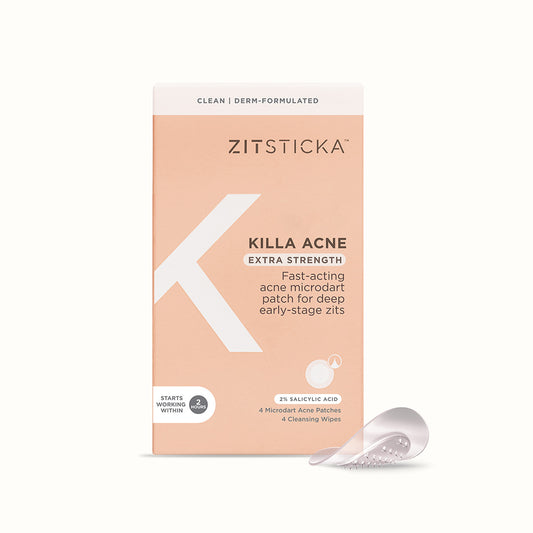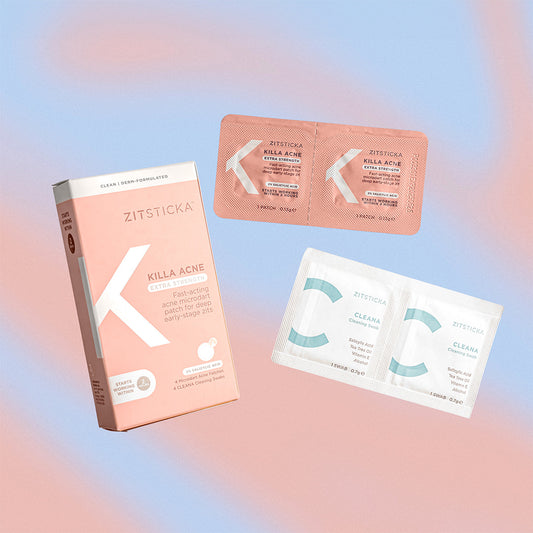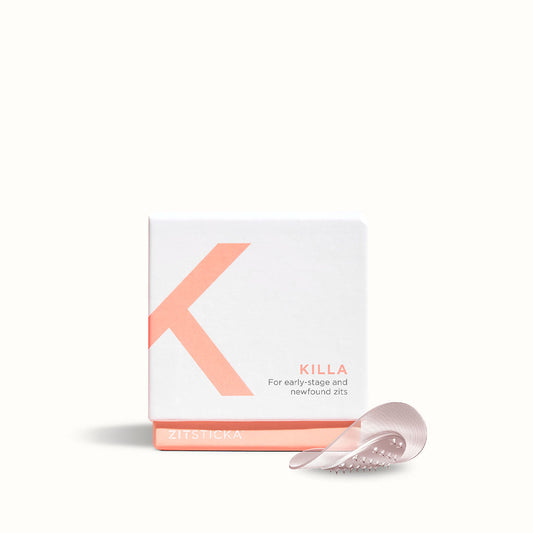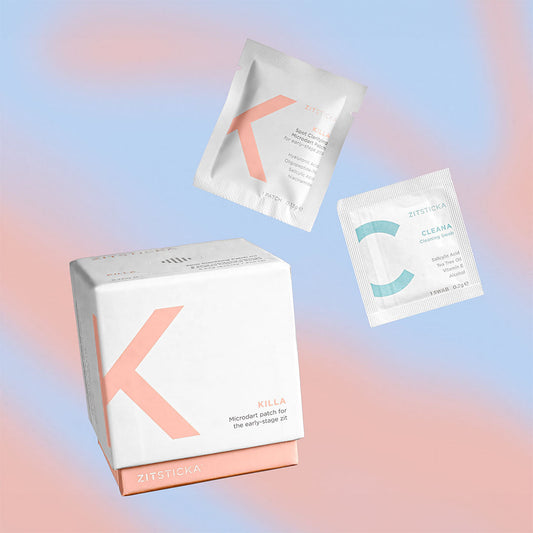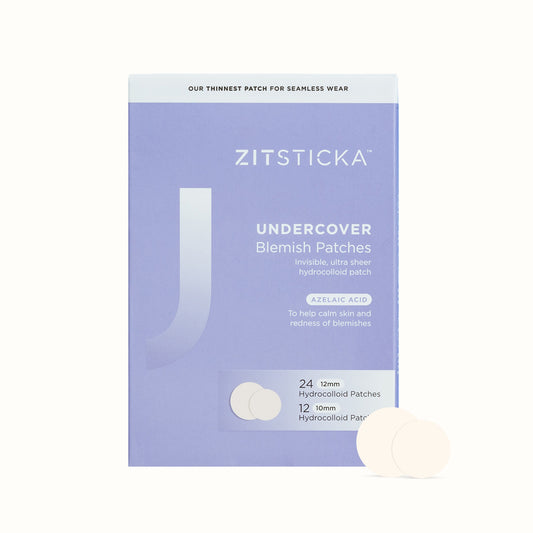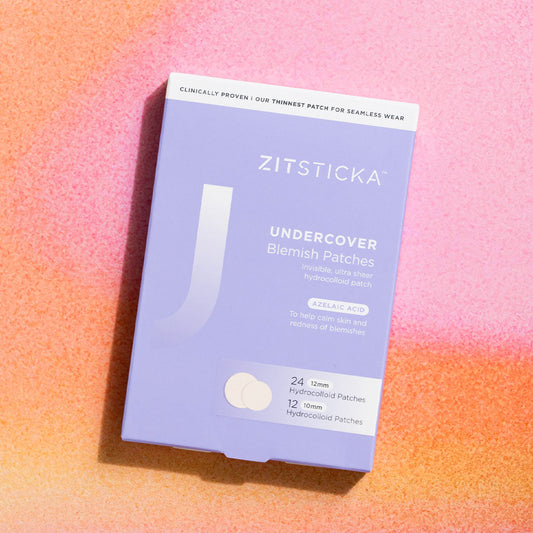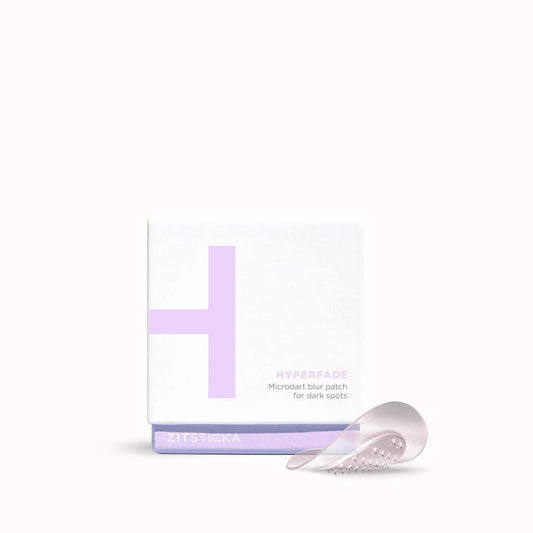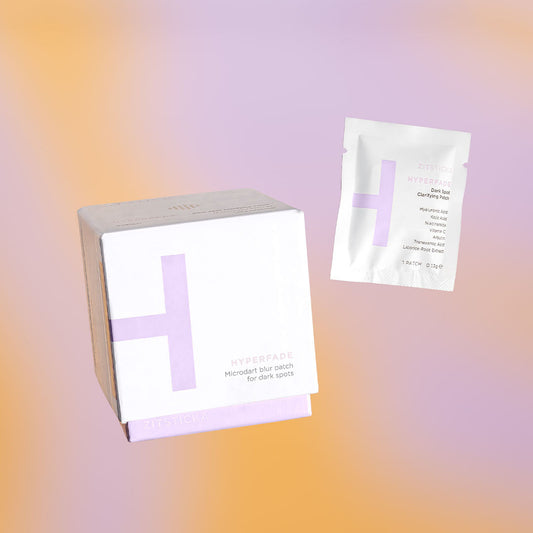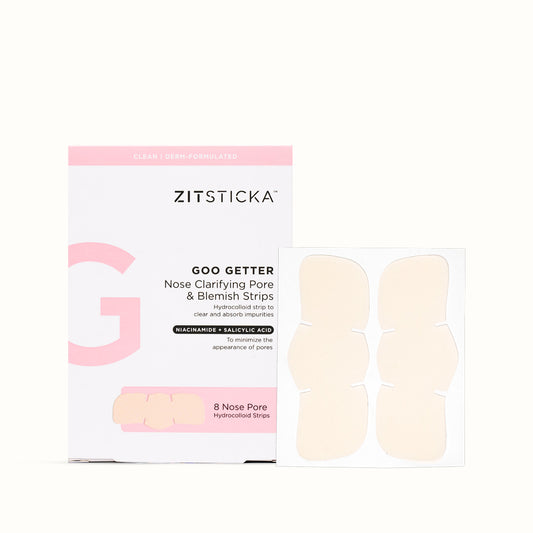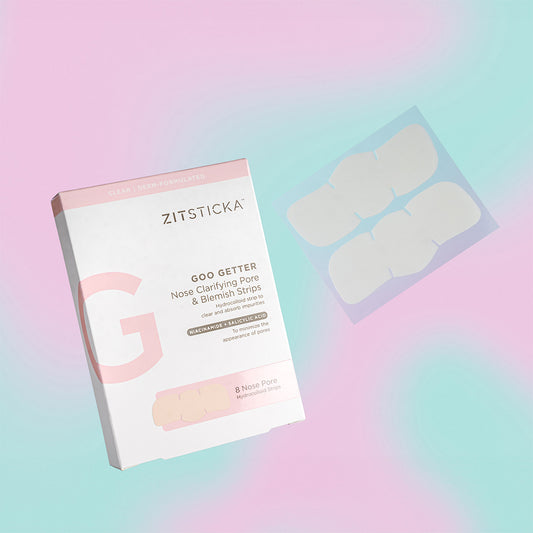So, your zit is gone. Great! But what about the dark spot it left behind?
The short answer is: There isn’t an overnight cure. But the good news is, there are ways. Certain remedies and compounds that scientists have found to both reduce the length of a dark spot, and prevent them from happening in the first place. Best part? All of them feature in HYPERFADE, our microdart patch for hyperpigmentation dark spots.
Nicotinamide
Nicotinamide, also known as niacinamide, is the fancy way of describing what is one of the two major forms of Vitamin B3, which is also one of the forms of Vitamin B that make vitamin B Complex. A bit of mouthful, but let’s move on.
When it comes to reducing breakouts, scientists have long known the benefits of Vitamin B3, including nicotinamide. But nicotinamide goes one step further, in that it helps reduce hyperpigmentation. This 2011 study from the Autonomous University of San Luis Potosí in Mexico, for example, found that nicotinamide treatment for hyperpigmentation effectively of hyperpigmentation in 44% of the patients trialed, as well as reducing the excess pigment in the skin, inflammatory infiltrate, and solar elastosis. Just wow.
Ascorbic Acid
So ascorbic acid is Vitamin C, and we all know Vitamin C is teacher’s pet for the immune system. But what’s less discussed is its role in the skin. In particular, hyperpigmentation reduction.
Vitamin C’s biggest position isn’t so much that it reduces hyperpigmentation — although research shows it does, especially when combined with other depigmentation ingredients — but rather that it acts as a red light. Vitamin C interrupts the process of melanogenesis, which is when your body responds to a perceived threat by producing more melanin, as well as inhibiting the synthesis of tyrosinase. An enzyme essential in the formulation of melanin.
Arbutin
For a bit of background, for melanin to be a thing, it relies heavily on this enzyme called tyrosinase. Vitamin C affects the synthesis of tyrosinase, and that in turn, prevents coloring. Arbutin has a similar effect but in a bit of a different process.
Arbutin, which is an extract of the bearberry plant, inhibits melanin not by stopping tyrosinase completely, but by hindering its melanin-forming aspects, cutting in at the middle. Considering that some melanin is important and healthy to have, Arubtin provides a treatment that’s banaler, and comprehensive when used with other hyperpigmentation remedies.
TXA
TXA is a bit of an anomaly, in the sense that it’s not a medication designed to treat hyperpigmentation (it’s actually used in surgeries to prevent excessive bleeding).
But TXA has an unexpected side effect on hyperpigmentation that was first noticed by scientists in the 1980s. The current theory here is that by inhibiting the UV-light induced activity of plasmin, an enzyme in your blood, that in turn reduces the activity of tyrosinase, and then that reduces melanin. And it works. In 2016, a study from the National Skin Center of Singapore found that 90% of the 561 patients with hyperpigmentation that were treated to TXA for four months had reduced severity.
Glycyrrhiza Glabra
Glycyrrhiza Glabra is the scientific name of the licorice plant, which has long been a traditional and herbal medicine, as well as a treatment for hyperpigmentation.
How licorice extract fights hyperpigmentation is due to one of its key compounds: the flavonoid Glabridin. Research shows, such as this study from 1998, that Glabridin benefits reduce skin inflammation as well as the synthesis of melanin (which is melanogenesis). Kind of like making licorice the superhero of hyperpigmentation treatments. By day, it’s a mild-mannered snack. By night, it’s a dark spot buster!
Macadamia Ternifolia Seed Oil
One nut to rule them all! The macadamia, the most delicious (and, sadly, expen$ive) nut there is, is well established as a healthy treat due to their quantity of good fats and fiber. And when it comes to macadamia oil, which is also known as macadamia ternifolia seed oil, research suggests there are benefits to the skin.
This study published in November 2019, for example, that tested a conventional cream and a nano-cream containing macadamia nut oil found that both reduced melanin levels by almost 25 percent after four weeks of treatment. Meaning that if melanin isn’t there, the chances hyperpigmentation is reduced, adding to a list of natural and effective treatments that all work together to prevent, reduce and shorten the length of dark spots.
Still unsure what exactly hyperpigmentation IS, if not scarring? Read this!

